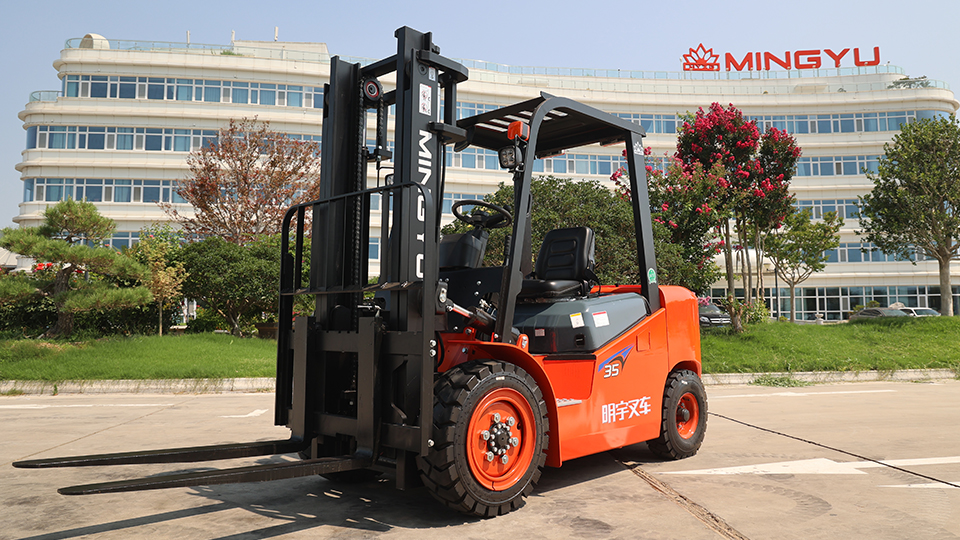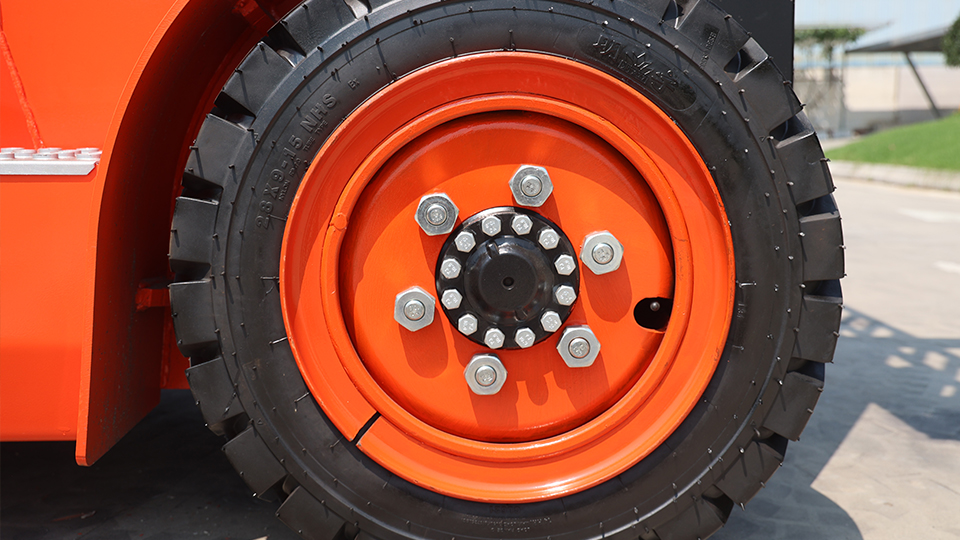
The Role of the Alternator in a Forklift
A forklift's alternator is a crucial component of its electrical system. It serves two primary functions:
Charging the Battery: It converts mechanical energy from the engine into electrical energy to keep the battery charged. This is especially important as the forklift's battery powers the starter, lights, and other electrical components.
Powering Electrical Systems: Once the engine is running, the alternator provides power to the forklift's electrical systems, such as the lights, gauges, and onboard computers. This reduces the strain on the battery.
If the alternator isn't working correctly, the forklift's battery will be drained, leading to performance issues and eventually, a dead machine. The failure is often caused by a combination of electrical, mechanical, and environmental factors.
Common Causes of Alternator Failure
There are several reasons why a forklift alternator might fail, with most of them related to the demanding environment in which a forklift operates.

1. Overloading the Electrical System
One of the most common causes of premature alternator failure is an overloaded electrical system. A forklift's electrical system is designed to handle a certain load. If you add additional accessories, such as extra lights or aftermarket radios, without upgrading the alternator, it can cause the alternator to work harder than it's designed to, leading to overheating and premature failure.
2. Battery Issues
A faulty or dead battery is a major culprit. When the battery is unable to hold a charge, the alternator is forced to constantly work at maximum capacity to try and charge it. This continuous strain can cause the alternator to overheat and burn out the internal components, particularly the voltage regulator and diodes.
3. Loose or Damaged Belt
The alternator belt, also known as the serpentine belt, connects the alternator to the engine's crankshaft. If this belt is loose, worn, or damaged, it can slip, preventing the alternator from spinning fast enough to generate the required voltage. The slippage creates friction and heat, which can damage the belt and the alternator pulley. If the belt is too tight, it can put excessive stress on the alternator bearings, causing them to fail prematurely.
4. Wiring and Connection Problems
Poor electrical connections are a frequent cause of alternator problems. Corrosion on battery terminals, loose wiring, or a short circuit can cause a voltage drop, forcing the alternator to work harder to compensate. This can also lead to a dangerous buildup of heat, which can melt insulation and cause a complete electrical failure.
5. Environmental Factors
Forklifts often operate in harsh environments. Dust, dirt, moisture, and debris can get into the alternator, clogging the ventilation openings and contaminating the internal components. This can lead to overheating and a shorter lifespan. A clean, well-maintained forklift is less likely to experience these types of failures.

Troubleshooting and Preventative Maintenance
To prevent your alternators from "blowing up," you should implement a routine maintenance schedule and be aware of the warning signs of a failing alternator.
Routine Inspections: Regularly inspect the alternator belt for signs of wear and proper tension. Check the battery terminals for corrosion and ensure all electrical connections are clean and secure.
Keep it Clean: Periodically clean the alternator and the engine bay to remove dust and debris that could cause overheating.
Monitor the Battery: A healthy battery is key to a long-lasting alternator. Test your forklift's battery regularly to ensure it's holding a charge. If it's old or not performing well, replace it before it damages the alternator.
Listen for Unusual Sounds: A failing alternator can produce a whining or grinding noise, which is often a sign of worn bearings.
Watch for Dimming Lights: Dimming or flickering headlights, dashboard lights, or other electrical accessories are a classic symptom of an alternator that is not producing enough power.
By being proactive with maintenance and addressing issues early, you can significantly extend the life of your forklift's alternator and avoid costly downtime.
Name: selena
Mobile:+86-13176910558
Tel:+86-0535-2090977
Whatsapp:8613181602336
Email:vip@mingyuforklift.com
Add:Xiaqiu Town, Laizhou, Yantai City, Shandong Province, China